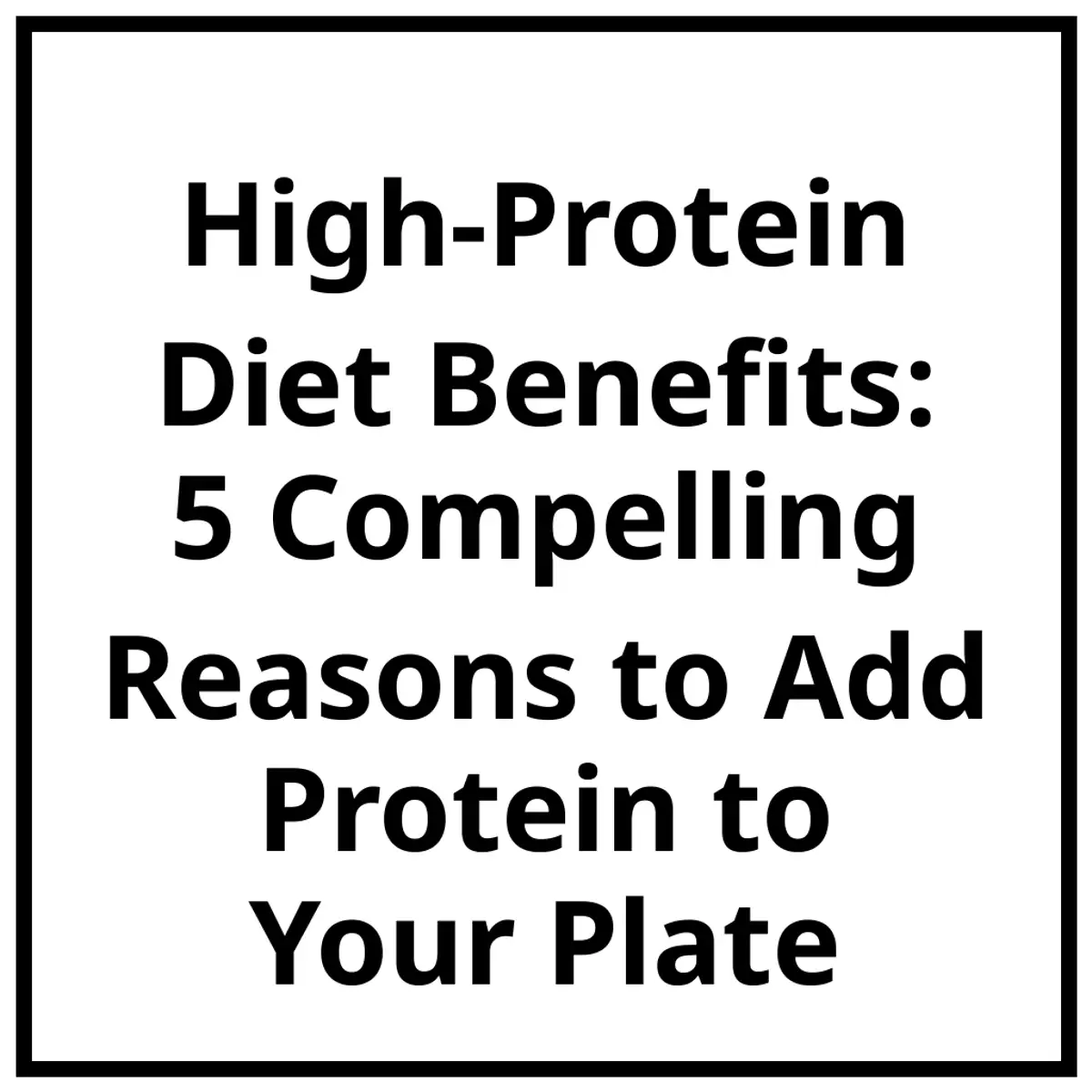Discover the amazing health benefits of a high-protein diet and how it can transform your meals for better health and well-being.

In today’s fast-paced world, the quest for healthier eating choices is more crucial than ever. High-protein foods have emerged as superstars in this endeavor, being touted not only as delicious but also essential for a balanced diet. As the popularity of protein-rich foods escalates, we delve into why they might just be the game-changer you need on your plate.
Read Also – 👉👉Lifelong Approach to Heart Disease Prevention: 8 Reasons Why Early Detection is Crucial👈👈
Understanding High-Protein Foods and Their Importance
What Qualifies as High-Protein Foods?
High-protein foods can be sourced from both animals and plants. Think of eggs, yogurt, and chicken as classic examples of animal-based proteins. Meanwhile, beans, lentils, and nuts round out the plant side of this healthy equation. For those leaning towards vegetarianism or veganism, options like quinoa, a complete protein, tofu, and tempeh serve as fantastic substitutes, ensuring everyone can benefit from adequate protein intake.
The Body’s Need for Protein
But why exactly is protein so pivotal? At its core, protein is vital for building and repairing tissues, producing enzymes and hormones, and bolstering the immune system. As we age, maintaining muscle mass becomes even more critical, making protein an essential nutrient, especially for older adults and fitness enthusiasts. According to health guidelines, a sedentary individual should strive for about 0.8 grams of protein per kilogram of body weight daily. This number jumps for athletes, illustrating the varying needs based on lifestyle.
How to Pack Protein into Your Daily Meals
Simple Ways to Incorporate Protein
- Start your day with a protein-rich breakfast, like Greek yogurt or an omelet.
- Add protein powder to your smoothies or coffee for an energy boost.
- Opt for lean meats or legumes in your lunch and dinner.
- Snack healthily with nuts or cottage cheese.
- Consider high-protein bread or pastas when shopping.
The Benefits of a High-Protein Diet
Health Benefits Galore
Transitioning to a high-protein diet comes with an array of health benefits. One noteworthy perk is weight loss; consuming protein requires more energy for digestion, thus enhancing metabolism. Plus, it’s a key player in muscle development and preservation, essential for mobility and metabolic health, particularly as we age.
Considering the Bigger Picture
However, with every trend come challenges and concerns. Critics of high-protein diets caution against an overemphasis on protein, which can inadvertently lead to shortages in other crucial nutrients, such as fiber and complex carbohydrates. Additionally, the environmental implications of increased meat consumption pose vital questions about sustainability, particularly when agricultural practices may lead to environmental degradation.
Looking Ahead: The Future of High-Protein Trends
What’s Next in High-Protein Eating?
- Growth in demand for sustainable plant-based protein options.
- Innovative approaches to blending protein into everyday foods.
- Advancements in cleaner, natural protein supplements.
- Rising awareness and education on balanced nutrition.
Conclusion: Why High-Protein Foods Matter
High-protein foods are reshaping our nutritional landscape, moving beyond mere trends to form fundamental blocks of healthy eating. Embracing protein-rich foods not only enhances our health but encourages a greater awareness of how our dietary choices impact overall well-being. Whether through diverse animal sources or innovative plant-based proteins, the embrace of high-protein diets presents us with a promising outlook for healthier lifestyles. So, what are you waiting for? It’s time to power up your meals with protein!
FAQs about High-Protein Diet Benefits
What are some examples of high-protein foods?
Great examples include eggs, chicken, fish, dairy products like Greek yogurt, and plant-based options such as lentils, beans, nuts, and quinoa.
How much protein do I need daily?
For a sedentary person, the recommendation is about 0.8 grams of protein per kilogram of body weight. Athletes often require more, depending on their activity level.
Can high-protein diets aid in weight loss?
Yes! High-protein diets can boost metabolism and help you feel fuller longer, which may contribute to weight loss.
Are there any downsides to a high-protein diet?
Some concerns include potential nutrient imbalances if protein is overemphasized at the expense of other important nutrients, and environmental issues related to increased meat consumption.
What are sustainable high-protein food options?
Options like lentils, chickpeas, quinoa, and other plant-based proteins are considered sustainable and environmentally friendly.
Related Videos
Read Also –
Always consult a healthcare provider or a registered dietitian before making significant changes to your diet.
Read Also –
| https://www.health.harvard.edu/nutrition/high-protein-foods-the-best-protein-sources-to-include-in-a-healthy-diet |
| https://www.bbcgoodfood.com/health/nutrition/best-sources-protein/ |
Hey! I hope you enjoyed reading this! If you did, could you do me a small favor and hit the like button? It would mean a lot to me and help me reach more people. Thank you so much! Got any thoughts on this post? Drop them in the comments below!
How many stars would you give for my effort?





